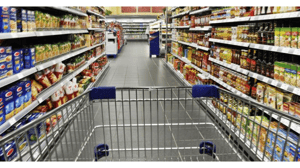Cooperation Speeds Theft Bust
Close cooperation between retailers and law enforcement helped accelerate the arrest of 18 people involved in an organized theft ring in Florida, a Publix executive said last week at the National Retail Federation's Loss Prevention Conference and Expo. This investigation took seven months, when it should have taken two years, John Hawthorne, senior loss prevention manager-distribution
June 30, 2008
CHRISTINE BLANK
ORLANDO, Fla. — Close cooperation between retailers and law enforcement helped accelerate the arrest of 18 people involved in an organized theft ring in Florida, a Publix executive said last week at the National Retail Federation's Loss Prevention Conference and Expo here.
“This investigation took seven months, when it should have taken two years,” John Hawthorne, senior loss prevention manager-distribution for Publix Super Markets, Lakeland, Fla., told SN.
Publix first became aware of the organized ring — which was stealing HBC products and reselling them online or at flea markets — when two people were caught stealing $4,500 worth of product at Publix in June 2007.
Polk County Sheriff's Office detectives, other law enforcement agencies and retailers began working together. By late January, the sheriff's office had arrested 18 people who had stolen an estimated $60 million to $100 million worth of HBC products in Florida.
Providing the right information to law enforcement agencies and being persistent helped Publix with this investigation, Hawthorne said.
Preparing cases in a form that law enforcement agencies can investigate and take to prosecutors is one important key, he said.
“We need to build a solid base before we call on law enforcement every time. We need to bring good preliminary work, which establishes investigative credibility.”
Then, the case must be presented from the point of view of law enforcement agencies.
“Law enforcement looks at the prosecutorial value of the case, such as the history of the suspects or their relationships to other criminals and criminal organizations,” Hawthorne said.
When one agency turns down the case, try another agency, he advised.
“We may be able to work on a relationship with a smaller law enforcement agency that we have a good relationship with, even though it may be taken to a larger law enforcement agency later,” Hawthorne said.
And getting other retailers involved in the investigation often gives it more credibility.
“We [retailers] may have to cross lines and figure out how to work with our competitors,” Hawthorne said.
About the Author
You May Also Like




